
Suncheon: The Ecological Jewel of South Korea
Suncheon, located in the southwestern part of South Korea, is a city that beautifully blends natural wonders with cultural heritage. Known as the ecological capital of South Korea, Suncheon offers an abundance of green spaces, making it a haven for nature lovers. The Suncheon Bay Wetland Reserve is a must-visit with its vast fields of reeds and diverse bird species. Here, you can walk along wooden pathways and observe the stunning scenery, especially during sunrise and sunset. The Suncheonman Bay National Garden is another highlight, showcasing an array of themed gardens from around the world. This expansive garden offers a peaceful retreat with its beautiful flowers, unique sculptures, and tranquil waterways. The garden is an ideal spot for a leisurely stroll or a family picnic. Nearby, you’ll find the Naganeupseong Folk Village, a well-preserved village where you can step back in time and experience traditional Korean life. The village features thatched-roof houses, ancient government buildings, and cultural performances that bring history to life. For those interested in exploring further, Suncheon offers easy access to other regional attractions such as the Seonamsa Temple, an ancient Buddhist temple nestled in the mountains, and the Songgwangsa Temple, one of the three most treasured temples in Korea. With its rich natural and cultural offerings, Suncheon is a destination that invites you to relax, explore, and immerse yourself in the beauty of South Korea.
Local tips in Suncheon
- Visit the Suncheon Bay Wetland Reserve early in the morning or late in the afternoon for the best bird-watching and photography opportunities.
- Allocate at least half a day for Suncheonman Bay National Garden to fully enjoy its vast grounds and various themed sections.
- Wear comfortable shoes when visiting Naganeupseong Folk Village as the terrain can be uneven.
- Check the local festival calendar; Suncheon hosts the Suncheon Bay Reeds Festival in autumn, which is a unique experience.
- Use public transportation or rent a bike for an eco-friendly way to explore the city and its surroundings.
Suncheon: The Ecological Jewel of South Korea
Suncheon, located in the southwestern part of South Korea, is a city that beautifully blends natural wonders with cultural heritage. Known as the ecological capital of South Korea, Suncheon offers an abundance of green spaces, making it a haven for nature lovers. The Suncheon Bay Wetland Reserve is a must-visit with its vast fields of reeds and diverse bird species. Here, you can walk along wooden pathways and observe the stunning scenery, especially during sunrise and sunset. The Suncheonman Bay National Garden is another highlight, showcasing an array of themed gardens from around the world. This expansive garden offers a peaceful retreat with its beautiful flowers, unique sculptures, and tranquil waterways. The garden is an ideal spot for a leisurely stroll or a family picnic. Nearby, you’ll find the Naganeupseong Folk Village, a well-preserved village where you can step back in time and experience traditional Korean life. The village features thatched-roof houses, ancient government buildings, and cultural performances that bring history to life. For those interested in exploring further, Suncheon offers easy access to other regional attractions such as the Seonamsa Temple, an ancient Buddhist temple nestled in the mountains, and the Songgwangsa Temple, one of the three most treasured temples in Korea. With its rich natural and cultural offerings, Suncheon is a destination that invites you to relax, explore, and immerse yourself in the beauty of South Korea.
When is the best time to go to Suncheon?
Iconic landmarks you can’t miss
Suncheon Bay Nature Reserve
Explore Suncheon Bay Nature Reserve, a stunning ecological park rich in biodiversity and breathtaking landscapes perfect for nature lovers and adventurers.
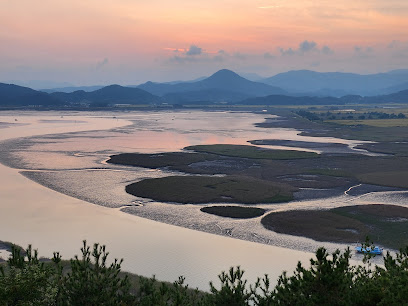
Suncheon Bay National Garden
Explore the natural beauty and biodiversity of Suncheon Bay National Garden, a serene escape in Jeollanam-do, South Korea, perfect for nature lovers and travelers alike.
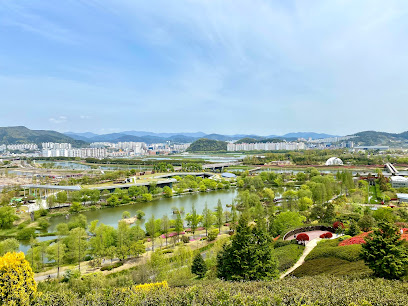
Nagan Eupseong Folk Village
Discover the rich heritage of Korea at Nagan Eupseong Folk Village, a picturesque destination showcasing traditional architecture and cultural experiences.
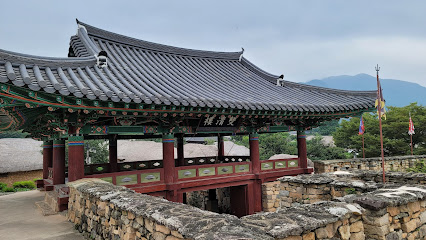
Suncheon Drama filming
Discover Suncheon, a captivating filming location in South Korea, where scenic beauty and rich culture blend seamlessly with the magic of Korean dramas.
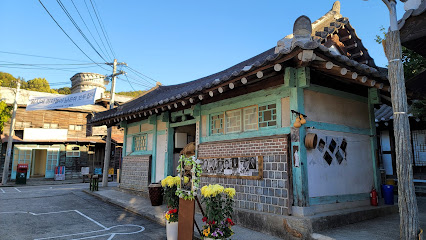
Suncheon Bay Reed Field
Discover the natural wonder of Suncheon Bay Reed Field, where serene landscapes and vibrant wildlife create a breathtaking ecological experience in South Korea.
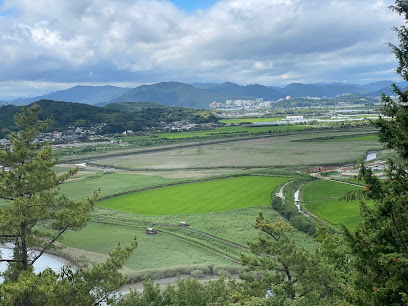
Songgwangsa Temple
Discover peace and spirituality at Songgwangsa Temple, a historic Buddhist sanctuary nestled in the heart of Jeollanam-do's natural beauty.
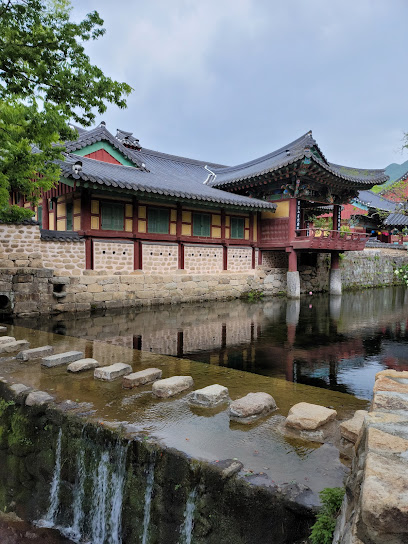
Hwangjeon Service Area
Discover comfort and convenience at Hwangjeon Service Area, your essential stop on the Suncheon Wanju Expressway in Jeollanam-do.
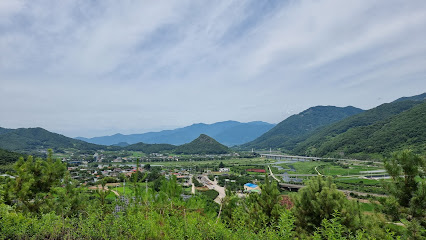
Yongsan Observatory
Discover the serene beauty and panoramic vistas at Yongsan Observatory in Jeollanam-do, a must-visit destination for nature enthusiasts and photographers.
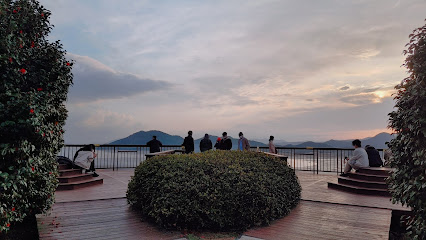
Seonamsa Temple
Discover the serene beauty and spiritual essence of Seonamsa Temple in Jeollanam-do, a hidden gem of South Korea's Buddhist heritage.
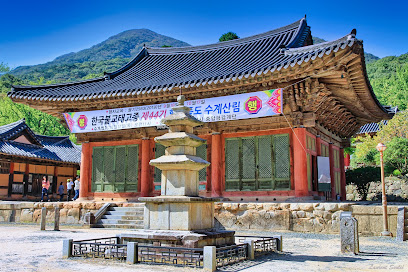
동천갯벌공연장
Experience the vibrant live music scene in Suncheon-si, Jeollanam-do, where local talent and great atmosphere come together for unforgettable nights.
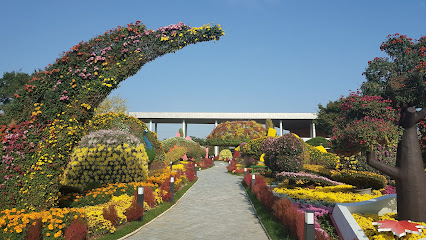
Jukdobong Park
Explore the lush landscapes and tranquil ambiance of Jukdobong Park in Suncheon, a perfect retreat for nature lovers and peace-seekers.
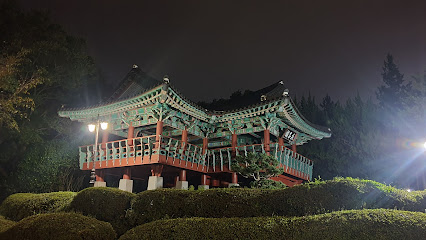
Homeplus Suncheon Pungdeok
Explore the vibrant Homeplus Suncheon Pungdeok for a unique shopping experience blending local flavors and international products in South Korea.
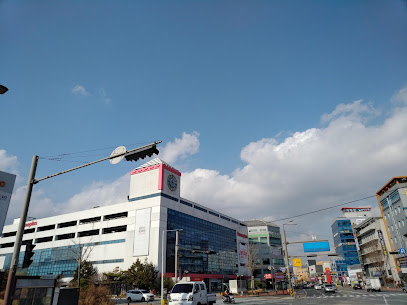
Myeong-Gung-Gwan
Experience the essence of Korean cuisine at Myeong-Gung-Gwan, where every meal is a journey through tradition and flavor.
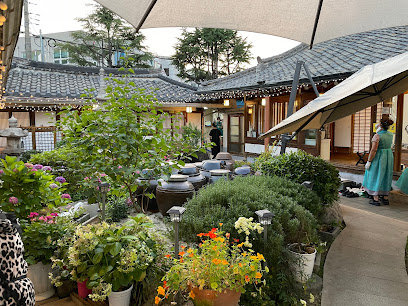
송광사묘법연화경찬술
Explore the serene beauty and historical significance of Songgwangsa Temple, a must-visit destination for those seeking peace and cultural enrichment in South Korea.
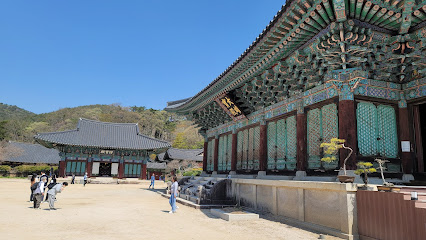
Suncheon Ppurigipeunnamu Museum
Explore the rich cultural heritage of Korea at Suncheon Ppurigipeunnamu Museum, a must-visit destination in Jeollanam-do that celebrates local art and history.
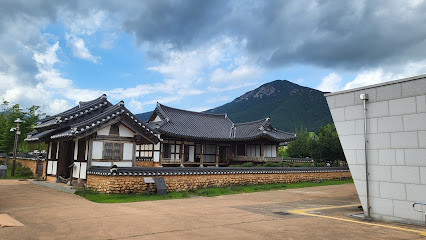
Unmissable attractions to see
Suncheon Bay Nature Reserve
Experience the breathtaking beauty and biodiversity of Suncheon Bay Nature Reserve, a must-visit ecological park in South Korea.
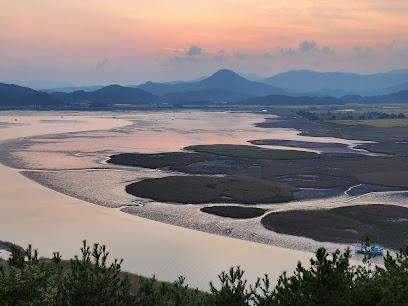
Aqua Planet Yeosu
Explore the wonders of marine life at Aqua Planet Yeosu, a premier aquarium and tourist attraction in South Korea's scenic Yeosu.
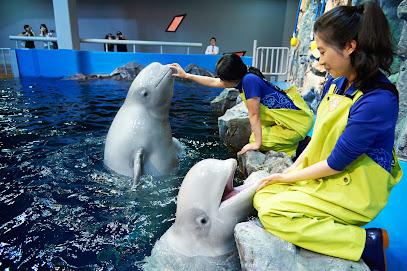
Suncheon Bay National Garden
Explore the lush beauty and diverse ecosystems at Suncheon Bay National Garden, a premier tourist attraction in South Korea's Jeollanam-do region.
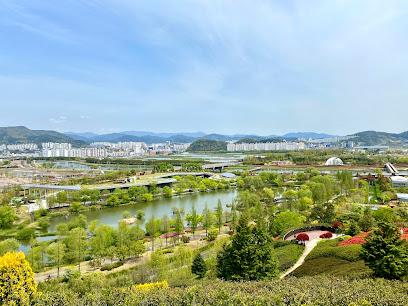
Nagan Eupseong Folk Village
Explore the enchanting Nagan Eupseong Folk Village, a cultural gem in Jeollanam-do, where history and tradition come alive amidst stunning landscapes.
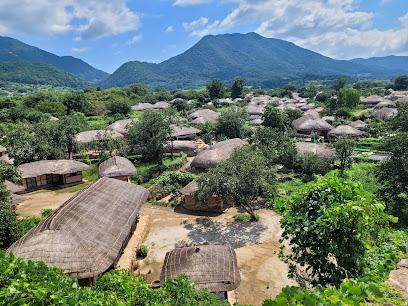
Suncheon Drama filming
Explore the enchanting Suncheon Drama Filming Location, where stunning landscapes meet the captivating world of Korean dramas in Jeollanam-do.
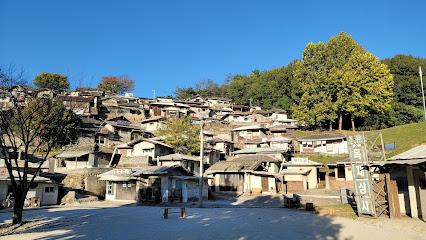
Soswaewon Garden
Discover the serene beauty of Soswaewon Garden in Damyang-gun, a stunning example of traditional Korean landscape design and horticulture.
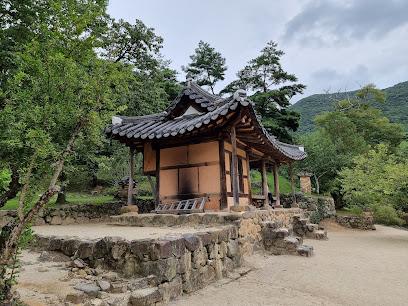
Ssanggyesa Temple
Experience the serene beauty and spiritual heritage of Ssanggyesa Temple, a historic Buddhist sanctuary nestled in the scenic mountains of Hadong-gun.
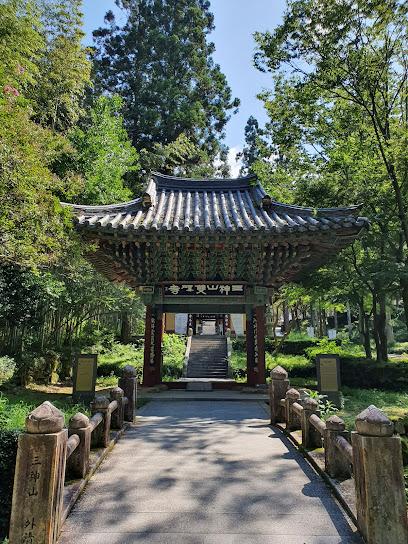
Songgwangsa Temple
Explore Songgwangsa Temple, a serene Buddhist site in Jeollanam-do, where history, culture, and nature harmoniously intertwine.
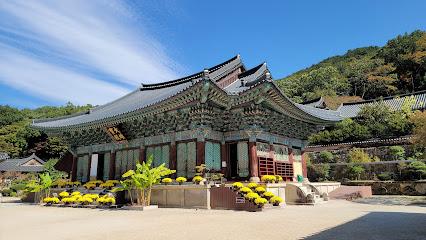
Yongsan Observatory
Experience breathtaking views and natural beauty at Yongsan Observatory, a must-visit destination in Suncheon, Jeollanam-do, South Korea.
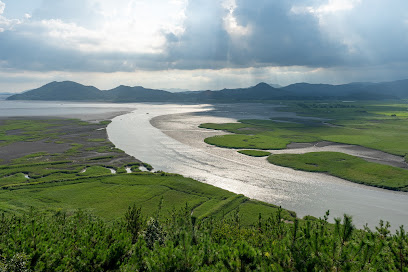
Samseonggung(青鶴洞)
Discover the tranquil beauty of Samseonggung, a historic site in Hadong, where spirituality meets stunning natural landscapes.
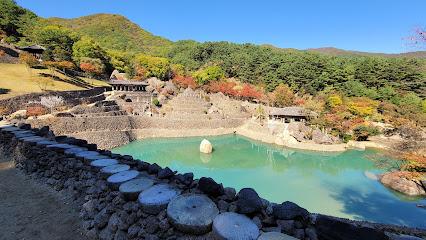
Saseongam Temple
Experience the serene beauty and rich cultural heritage of Saseongam Temple, a scenic gem in Gurye-gun, Jeollanam-do.
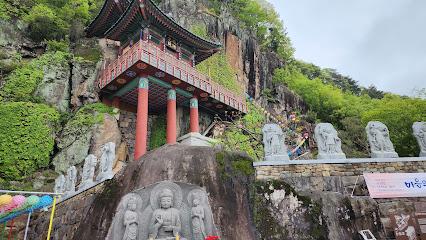
Gwangyang Maehwa Festival
Experience the enchanting Gwangyang Maehwa Festival, where stunning plum blossoms meet vibrant culture and delicious local cuisine in South Korea's Jeollanam-do region.
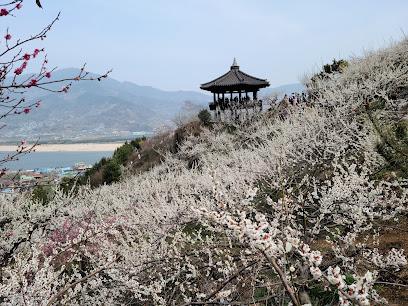
Jukdobong Park
Explore the natural beauty and tranquility of Jukdobong Park in Suncheon, a perfect retreat for nature lovers and families.
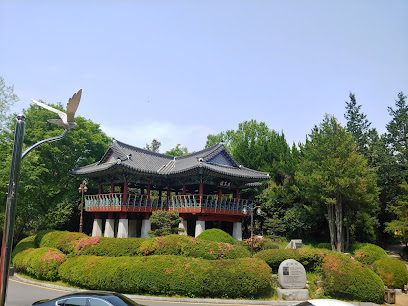
National Asian Culture Center
Discover the vibrant tapestry of Asian cultures at the National Asian Culture Center in Gwangju, where art, history, and entertainment intertwine.
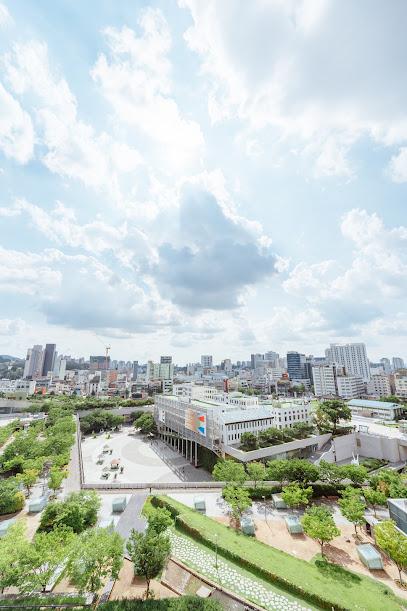
Suncheon Ppurigipeunnamu Museum
Explore the Suncheon Ppurigipeunnamu Museum, where nature meets culture in the heart of Jeollanam-do, South Korea.
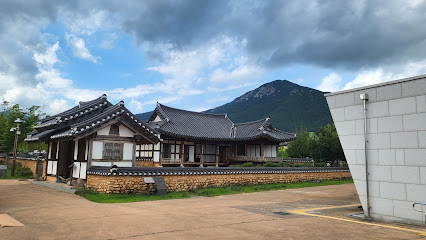
Essential places to dine
Byeokodong
Experience authentic Korean flavors at Byeokodong in Suncheon-si - where tradition meets taste in every dish.
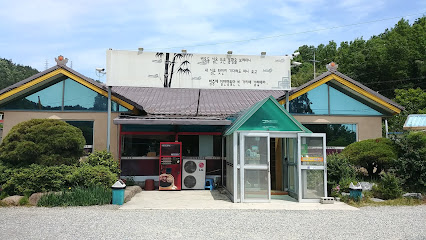
나눌터
Savor authentic Korean dishes at 나눌터 in Suncheon-si – where tradition meets flavor.
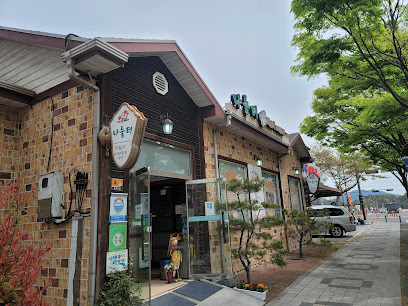
진일기사식당
Discover the rich flavors of Korea at 진일기사식당 in Suncheon – where authentic cuisine meets warm hospitality.
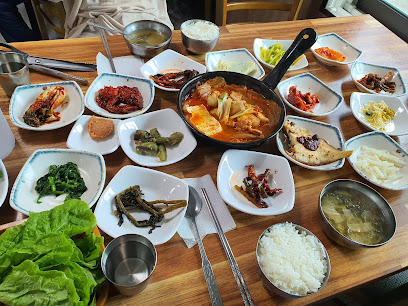
Geumbin Hoegwan
Discover the essence of Korean cuisine at Geumbin Hoegwan, where tradition meets flavor in every dish.
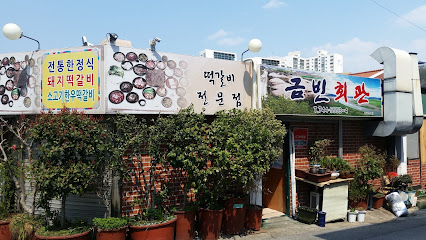
쌍암기사식당
Explore the rich flavors of Korea at 쌍암기사식당, where an extensive buffet awaits food lovers in Suncheon.
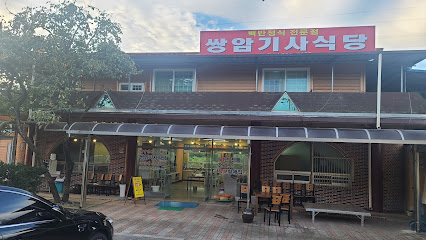
Gogyesan Boribap Wonjojip
Discover authentic Korean cuisine at Gogyesan Boribap Wonjojip in Suncheon-si—where tradition meets flavor at an affordable price.
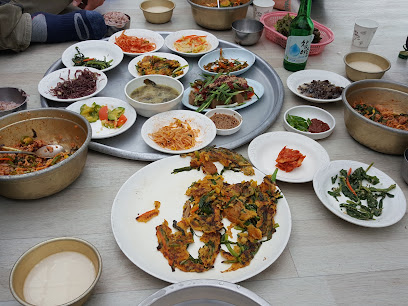
Suncheon Bay Garden
Discover serenity at Suncheon Bay Garden: a breathtaking oasis where vibrant flora meets tranquil landscapes in Jeollanam-do.
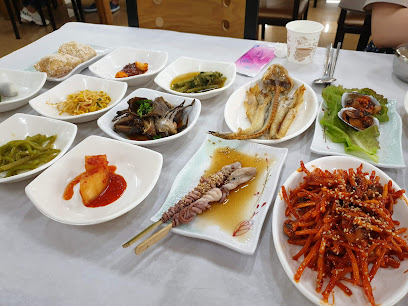
Gilsang Sikdang
Experience the heart of Korean cuisine at Gilsang Sikdang in Suncheon – where tradition meets flavor in every dish.
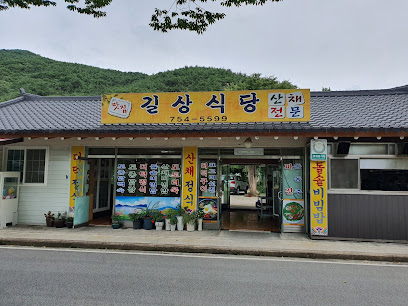
Suryeonsanbang
Experience authentic Korean cuisine at Suryeonsanbang in Suncheon-si - a culinary gem surrounded by nature's beauty.
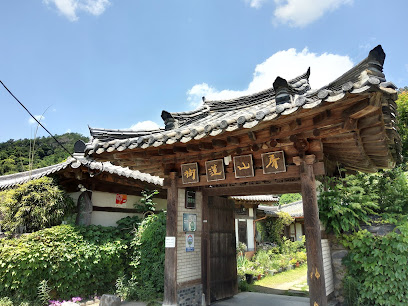
초연기사식당
Discover authentic Korean cuisine at 초연기사식당 in Suncheon – where tradition meets taste in every dish.
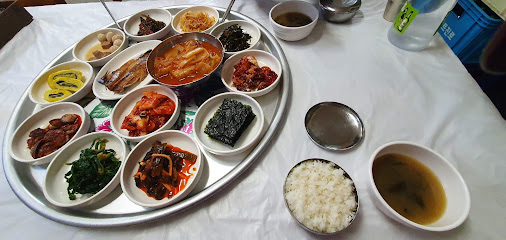
금성가든
Discover authentic Korean flavors at 금성가든 in Suncheon-si – where tradition meets culinary excellence.
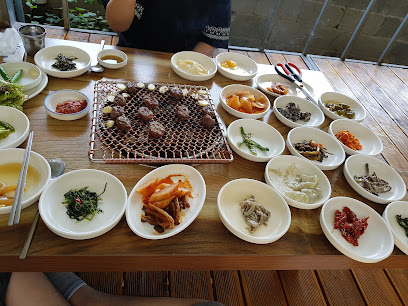
초원식당
Discover authentic Korean flavors at 초원식당 in Suncheon-si - where tradition meets taste in every dish.
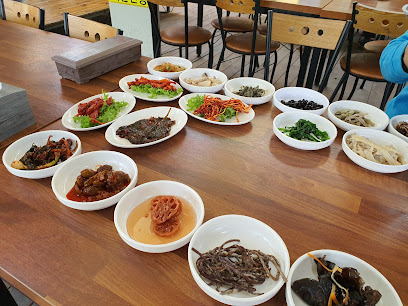
선암식당
Experience authentic Korean flavors at Seonam Restaurant in Suncheon-si – a culinary haven amidst Jeollanam-do's natural beauty.
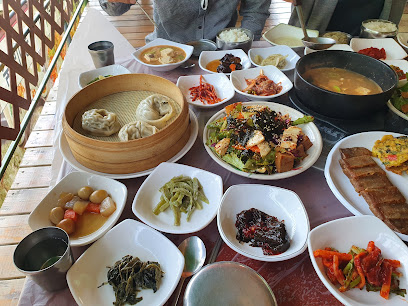
홍천뚝배기
Discover authentic Korean flavors at 홍천뚝배기 in Suncheon-si - a culinary journey through Jeollanam-do's rich gastronomic heritage.
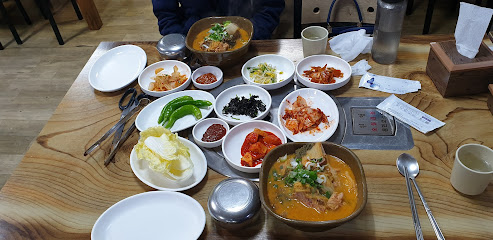
정문회관
Discover authentic Korean flavors at Jeongmun Hall in Suncheon – where every dish tells a story!
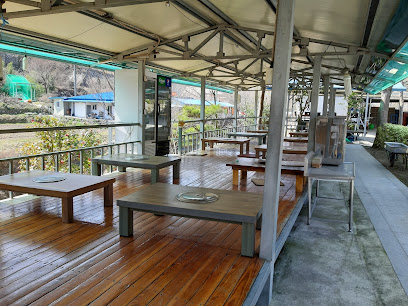
Markets, malls and hidden boutiques
상사댐매점
Explore local flavors and essentials at Sangsa Dam Convenience Store, a charming supermarket nestled in the heart of Jeollanam-do's natural beauty.
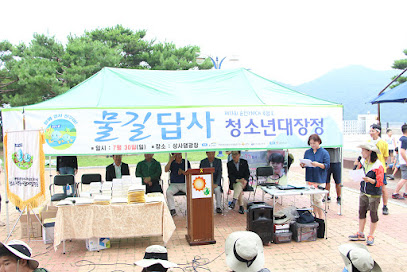
숲719
Discover serenity at 숲719, a cozy coffee shop in Suncheon, offering delightful brews and a peaceful atmosphere amidst nature's beauty.
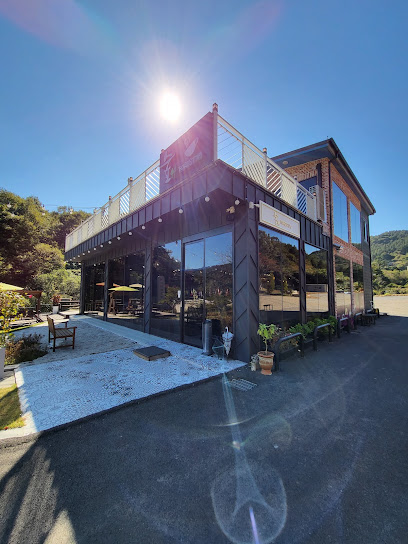
선암사매표소구내매점
Explore Jeollanam-do with ease at 선암사매표소구내매점, your convenient store for local snacks and essentials.
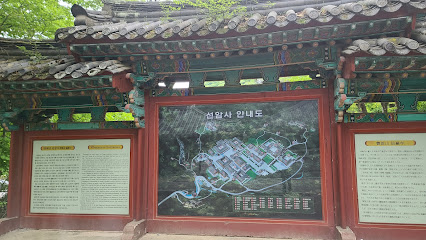
핸즈
Experience the authentic flavors of Jeollanam-do at 핸즈, a charming bakery offering a wide range of delicious pastries and breads.
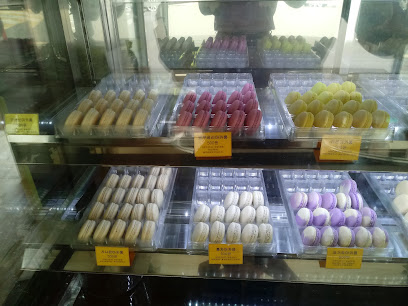
GS25 e편한세상
Discover convenience at GS25 e편한세상 in Suncheon, the perfect stop for snacks, local treats, and everyday essentials during your travels.
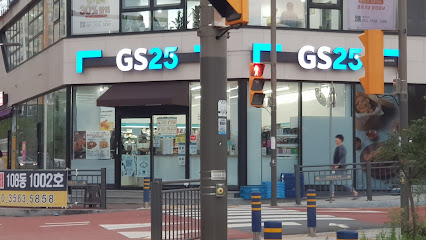
밀낙원베이커리
Discover the delightful flavors of traditional and modern baked goods at 밀낙원베이커리 in Suncheon-si, Jeollanam-do, a must-visit for all pastry lovers.

Handsome furniture store
Shop exquisite Korean craftsmanship at the Handsome Furniture Store in Suncheon-si, a must-visit destination for furniture lovers and design enthusiasts.
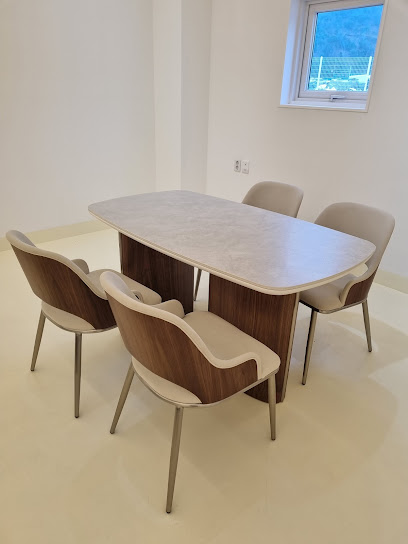
동양매직
Experience the wonder of magic at 동양매직, a unique store in Suncheon-si offering enchanting products that celebrate the art and culture of magic.

Hom-Ateu
Explore Hom-Ateu in Suncheon-si, where Korean craftsmanship meets modern design in a charming home goods store.

Hag-Ijae
Discover Hag-Ijae, a charming book store in Suncheon offering a cozy atmosphere and an extensive selection of literature for all ages.

Geullicheu
Explore the enchanting Geullicheu gift shop in Suncheon-si for unique souvenirs and local crafts that embody the essence of Korean culture.

에코그린 플라워
Discover the floral beauty of Suncheon at Eco Green Flower, your go-to gift shop for vibrant arrangements and unique local treasures.

블링블링
Explore the charm of BlingBling Gift Shop in Suncheon, offering a unique selection of gifts and souvenirs reflecting South Korean culture and creativity.

Meosjingeol
Discover unique fashion pieces at Meosjingeol, a charming clothing store in Suncheon-si, Jeollanam-do, perfect for style-savvy travelers.

축복꽃하우스
Discover unique treasures and heartfelt souvenirs at 축복꽃하우스, a charming gift shop in Suncheon that celebrates Korean artistry.
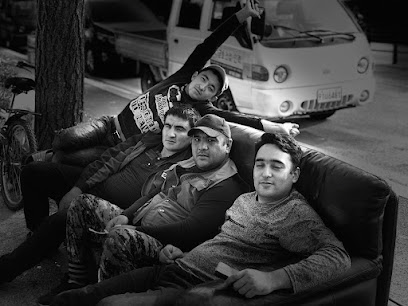
Essential bars & hidden hideouts
Suncheon Brewery
Experience the best of local brews and gourmet dining at Suncheon Brewery in Jeollanam-do, a must-visit gastropub for tourists.
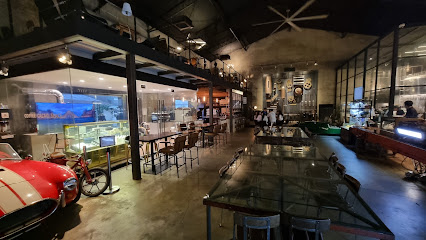
BLUE NOTE
Discover the vibrant nightlife of Suncheon-si at Blue Note, where local culture meets delicious drinks and live music in a welcoming atmosphere.
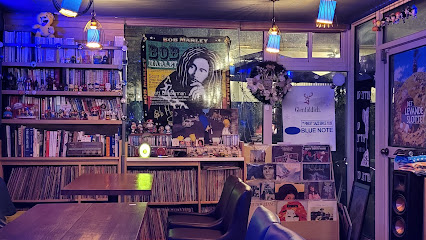
Real Pub Suncheon court points
Discover the vibrant nightlife of Suncheon at Real Pub, where local culture meets a lively atmosphere and delicious drinks.
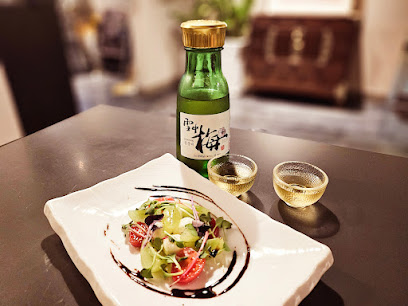
낙우송
Experience the charm of 낙우송, a cozy bar in Suncheon-si offering a delightful selection of drinks in a welcoming atmosphere.

영웅비어
Experience the local culture at 영웅비어, a cozy bar in Suncheon offering craft beers and delicious snacks in a welcoming atmosphere.

Syubabing
Discover the cozy ambiance of Syubabing in Suncheon-si, where local flavors and friendly vibes create a perfect bar experience.

청춘호프
Experience the vibrant nightlife of Suncheon at 청춘호프, a lively bar serving a variety of drinks in a welcoming atmosphere.

블루호프
Immerse yourself in the local vibe at 블루호프, a charming bar in Suncheon, Jeollanam-do, where drinks and great company await.

1°C
Discover the perfect blend of relaxation and nightlife at 1°C, a trendy bar in Suncheon offering an inviting atmosphere and diverse drink selections.

마마술잔
Discover 마마술잔, a charming bar in Suncheon, where local drinks and warm hospitality create unforgettable moments.

나인레스토호프
Discover the heart of Suncheon’s nightlife at 나인레스토호프, where local flavors and vibrant atmosphere come together.

테라호프
Discover the lively atmosphere and local flavors at 테라호프, a must-visit pub in Suncheon-si, Jeollanam-do, perfect for unwinding after a day of exploration.

42BEER
Experience the vibrant nightlife of Suncheon at 42BEER, a must-visit bar offering an array of local craft beers and cocktails in a lively atmosphere.

Hiba
Discover Hiba, a trendy cocktail bar in Suncheon, Jeollanam-do, where innovative drinks and vibrant atmosphere await every visitor.

Local Phrases
-
- Hello안녕하세요
[ahn-nyeong-ha-se-yo] - Goodbye안녕히 가세요
[ahn-nyeong-hee ga-se-yo] - Yes네
[neh] - No아니요
[a-ni-yo] - Please/You're welcome부탁합니다/천만에요
[boo-tak-ham-ni-da/cheon-man-eh-yo] - Thank you감사합니다
[gam-sa-ham-ni-da] - Excuse me/Sorry죄송합니다
[joe-song-ham-ni-da] - How are you?어떻게 지내세요?
[uh-ddeok-keh ji-nae-seh-yo] - Fine. And you?잘 지내요. 그리고 당신은요?
[jal ji-nae-yo. geu-ri-go dang-shi-neun-yo?] - Do you speak English?영어 할 수 있나요?
[yeong-eo hal soo it-na-yo?] - I don't understand이해하지 못해요
[i-hae-ha-ji mot-hae-yo]
- Hello안녕하세요
-
- I'd like to see the menu, please메뉴를 보고 싶어요
[me-nyu-reul bo-go ship-eo-yo] - I don't eat meat고기를 먹지 않아요
[go-gi-reul meok-ji anh-a-yo] - Cheers!건배!
[gun-bae!] - I would like to pay, please계산해 주세요
[gye-san-hae joo-se-yo]
- I'd like to see the menu, please메뉴를 보고 싶어요
-
- Help!도와주세요!
[do-wa-ju-se-yo!] - Go away!가세요!
[ga-se-yo!] - Call the Police!경찰을 불러주세요!
[gyeong-chal-eul bul-leo-ju-se-yo!] - Call a doctor!의사를 불러주세요!
[ui-sa-reul bul-leo-ju-se-yo!] - I'm lost길을 잃었어요
[gil-eul ilh-eoss-eo-yo] - I'm ill아파요
[a-pa-yo]
- Help!도와주세요!
-
- I'd like to buy...살 것 같아요...
[sal geot ga-ta-yo...] - I'm just looking둘러보기만 해요
[doo-reo-bo-gi-man hae-yo] - How much is it?얼마에요?
[eol-ma-eh-yo?] - That's too expensive너무 비싸요
[neo-mu bi-ssa-yo] - Can you lower the price?가격을 낮출 수 있나요?
[ga-geuk-eul nat-chul soo it-na-yo?]
- I'd like to buy...살 것 같아요...
-
- What time is it?지금 몇 시에요?
[ji-geum myeot si-eh-yo?] - It's one o'clock한 시에요
[han si-eh-yo] - Half past (10)열 시 반
[yeol si ban] - Morning아침
[ah-chim] - Afternoon오후
[oh-hoo] - Evening저녁
[jeo-nyeok] - Yesterday어제
[uh-je] - Today오늘
[oh-neul] - Tomorrow내일
[nae-il] - 1하나
[ha-na] - 2둘
[dool] - 3셋
[set] - 4넷
[net] - 5다섯
[da-seot] - 6여섯
[yeo-seot] - 7일곱
[il-gop] - 8여덟
[yeo-deol] - 9아홉
[ah-hop] - 10열
[yeol]
- What time is it?지금 몇 시에요?
-
- Where's a/the...?어디에 ... 이에요?
[uh-di-eh ... ee-eh-yo?] - What's the address?주소가 무엇이에요?
[joo-so-ga mu-eot-ee-eh-yo?] - Can you show me (on the map)?지도로 보여 줄 수 있나요?
[ji-do-ro bo-yeo jul soo it-na-yo?] - When's the next (bus)?다음 (버스) 언제에요?
[da-eum (beo-seu) eon-je-eh-yo?] - A ticket (to ....)(...) 표 하나 주세요
[(...) pyo ha-na joo-se-yo]
- Where's a/the...?어디에 ... 이에요?
History of Suncheon
-
Suncheon, located in South Jeolla Province, has a rich history dating back to the Three Kingdoms Period (57 BCE – 668 CE). During this era, the region was a part of the Mahan confederacy, which later became a part of the Baekje Kingdom. Archaeological findings, including ancient pottery and burial mounds, provide evidence of Suncheon's early prominence as a cultural and economic hub.
-
During the Goryeo Dynasty (918–1392), Suncheon was recognized for its strategic importance. It became a significant military outpost due to its geographical position along the southern coast. The region was fortified with castles and defensive structures to protect against frequent pirate invasions. The remains of Nagan Eupseong, a well-preserved fortress village from this period, offer a glimpse into the military and administrative life of the era.
-
The Joseon Dynasty (1392–1897) marked a period of cultural and economic growth for Suncheon. The city became known for its vibrant markets, educational institutions, and religious sites. Suncheon Hyanggyo, a Confucian school established during this time, highlights the importance of education and Confucian values. Additionally, the development of Seonamsa and Songgwangsa temples reflects the region's deep Buddhist heritage.
-
During the Japanese occupation of Korea (1910–1945), Suncheon, like much of the country, faced significant hardship. Despite the oppressive regime, the city became a center of resistance. Local independence activists, including members of the Suncheon Youth Group, played crucial roles in the larger Korean independence movement. The Suncheon Incident in 1948, a tragic event where thousands were killed or imprisoned, underscored the region's tumultuous struggle for freedom.
-
In the post-Korean War period, Suncheon transformed into a modern city while preserving its historical and cultural heritage. The establishment of Suncheon National University in 1982 and the designation of Suncheon Bay as an ecological reserve in 2003 reflect the city's commitment to education and environmental sustainability. The Suncheon Bay Garden Expo in 2013 further cemented Suncheon's reputation as a leader in ecological conservation, drawing visitors from around the world.
-
Suncheon hosts numerous cultural festivals that celebrate its rich history and traditions. The Suncheon Bay Reeds Festival, held annually in the autumn, showcases the natural beauty of Suncheon Bay's wetlands. The Nagan Eupseong Folk Village Festival offers a vibrant display of traditional Korean culture, featuring folk performances, crafts, and cuisine. These events provide visitors with immersive experiences that highlight the city's enduring cultural legacy.
Suncheon Essentials
-
Suncheon is located in the South Jeolla Province of South Korea. The nearest international airport is Yeosu Airport, about 30 kilometers away. From the airport, you can take a taxi, bus, or rent a car to reach Suncheon. Alternatively, you can travel by train from major cities like Seoul or Busan. The KTX high-speed train connects Seoul to Suncheon in approximately 3 hours. Buses also frequently run from various cities to Suncheon, offering an affordable option.
-
Suncheon has an efficient public transportation system, including buses and taxis. The city is compact, making it easy to explore on foot or by bicycle. For trips to nearby attractions, local buses are reliable and convenient. Taxis are also readily available and are a good option for shorter distances or when traveling in groups. Car rentals are another option if you plan to explore the surrounding countryside at your own pace.
-
The official currency in South Korea is the South Korean Won (KRW). Credit cards are widely accepted in Suncheon, including in hotels, restaurants, and shops. However, it is advisable to carry some cash for small purchases and in rural areas. ATMs are plentiful and can be found in convenience stores, banks, and other locations.
-
Suncheon is generally a safe destination for tourists. However, it is always wise to take standard precautions. Avoid walking alone at night in unfamiliar areas and keep an eye on your belongings in crowded places. While there are no specific high-crime areas targeting tourists, staying vigilant and aware of your surroundings is recommended.
-
In case of emergency, dial 112 for police assistance and 119 for fire and medical emergencies. Suncheon has well-equipped medical facilities, and pharmacies are widely available for minor health issues. It is recommended to have travel insurance that covers medical emergencies.
-
Fashion: Do dress modestly, especially when visiting temples or historical sites. Avoid overly revealing clothing. Religion: Do respect local customs and traditions. Remove your shoes before entering temples. Public Transport: Do offer your seat to elderly passengers and avoid talking loudly. Don't eat or drink on public transport. Greetings: Do greet people with a slight bow or a handshake. Avoid overly familiar gestures. Eating & Drinking: Do try local delicacies and accept food offerings graciously. Don't leave chopsticks sticking upright in your bowl, as it resembles a funeral rite.
-
To experience Suncheon like a local, visit the Suncheon Bay Wetland Reserve early in the morning to enjoy the serene natural beauty. Explore the local markets to buy fresh produce and traditional goods. Engage with locals, who are often friendly and willing to share stories about the city's history and culture. Don't miss the Suncheon Open Film Set, where you can see filming locations for popular Korean dramas.
Trending Landmark in Suncheon
-
Suncheon Bay Nature Reserve
-
Suncheon Bay National Garden
-
Nagan Eupseong Folk Village
-
Suncheon Drama filming
-
Suncheon Bay Reed Field
-
Songgwangsa Temple
-
Hwangjeon Service Area
-
Yongsan Observatory
-
Seonamsa Temple
-
동천갯벌공연장
-
Jukdobong Park
-
Homeplus Suncheon Pungdeok
-
Myeong-Gung-Gwan
-
송광사묘법연화경찬술
-
Suncheon Ppurigipeunnamu Museum
Nearby Cities to Suncheon
-
Things To Do in Gwangju
-
Things To Do in Mokpo
-
Things To Do in Jeonju
-
Things To Do in Daegu
-
Things To Do in Daejeon
-
Things To Do in Busan
-
Things To Do in Ulsan
-
Things To Do in Jeju City
-
Things To Do in Gyeongju
-
Things To Do in Pohang
-
Things To Do in Andong
-
Things To Do in Suwon
-
Things To Do in Incheon
-
Things To Do in Seoul
-
Things To Do in Fukuoka










